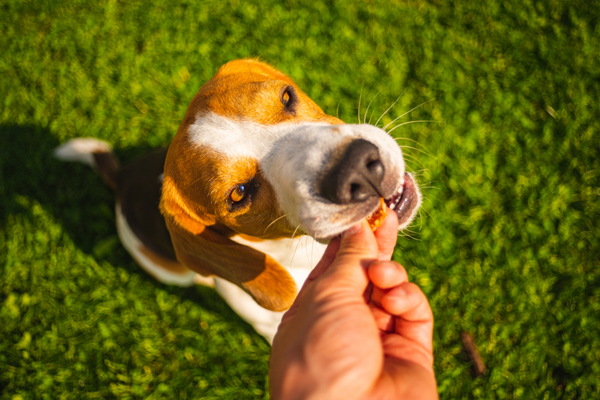With so many bones available in pet stores, you would think they’re good for dogs, but the reality is bones can lead to serious injuries.
According to VCA Animal Hospitals t’s a myth that dogs need to chew on animal bones. Bones are often marketed as a way to clean your dog’s teeth, helping to remove plaque and tartar, therefore reducing the risk of periodontal disease. However that’s just not the case, whether or not they are packaged and sold in pet stores as treats. Because animal bones are as hard as, or harder than dogs’ teeth, it’s easy for them to break a tooth while gnawing or chewing on bones.
Broken teeth are painful and must be treated—either through extraction or a root canal surgery. Bones can also splinter leading to serious injuries in the mouth and digestive tract. Fragments of bone can become lodged in the esophagus, stomach or intestine leading to painful blockages, often requiring emergency surgery. Bones with a hole in the center can get looped around the lower jaw requiring sedation or anesthesia in order to cut off the bone. And finally, raw bones can be contaminated with bacteria which may cause illness in the dog but do pose a serious health risk to the people living in the home.
So, if not bones, then how do you keep your dog’s teeth clean? According to Vet experts, the best way to maintain your dog’s dental hygiene and keep their gums and teeth free of plaque is by scheduling regular teeth cleanings at the vet and brushing their teeth daily with a dog-safe toothpaste and toothbrush combo. But dental chews can also help: They work to mechanically scrape off odor-causing bacteria and leftover food from their teeth. Some dental chews include a chemical anti-plaque agent like delmopinol that creates a protective barrier on the teeth.
Dental chews can help reduce plaque and tartar accumulation as long as they’re used alongside other teeth-cleaning methods. You should also consider what type of chewer your dog is to see if they’d actually benefit from regular dental treats or if that’ll just be empty added calories.
Dog owners should also be sure to track the dental treat calories and adjust food portions accordingly — treats shouldn’t exceed more than 10% of your dog’s daily calorie intake, experts explained in our guide to dog treats. If your dog is getting several treats throughout the day, it’s probably best to give them two to three dental chews a week rather than giving them out daily. And just like their regular treats, “always consider the size of your dog and avoid chews or sticks that are too small for the breed to avoid choking hazards,” said Caylee Freels, a licensed veterinary technician at VCA White Lake Animal Hospital.
—
Photo Credit: Przemek Iciak / Shutterstock.com
